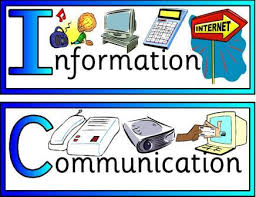-
Welcome to your new Gnomio site
Now, you are in control!
Moodle is an open-source Learning Management System (LMS) that provides educators with the tools and features to create and manage online courses. It allows educators to organize course materials, create quizzes and assignments, host discussion forums, and track student progress. Moodle is highly flexible and can be customized to meet the specific needs of different institutions and learning environments.
Moodle supports both synchronous and asynchronous learning environments, enabling educators to host live webinars, video conferences, and chat sessions, as well as providing a variety of tools that support self-paced learning, including videos, interactive quizzes, and discussion forums. The platform also integrates with other tools and systems, such as Google Apps and plagiarism detection software, to provide a seamless learning experience.
Moodle is widely used in educational institutions, including universities, K-12 schools, and corporate training programs. It is well-suited to online and blended learning environments and distance education programs. Additionally, Moodle's accessibility features make it a popular choice for learners with disabilities, ensuring that courses are inclusive and accessible to all learners.
The Moodle community is an active group of users, developers, and educators who contribute to the platform's development and improvement. The community provides support, resources, and documentation for users, as well as a forum for sharing ideas and best practices. Moodle releases regular updates and improvements, ensuring that the platform remains up-to-date with the latest technologies and best practices.
Links of interest:
(You can edit or remove this text)
Available courses

Information and Communication Technology (ICT) is an umbrella term for all technologies used to handle information, encompassing digital and communication systems like computers, the internet, mobile devices, and broadcasting. ICT focuses on the infrastructure and components that enable the creation, storage, retrieval, processing, and transmission of information, as well as facilitating communication between people and machines. It integrates telecommunications with computing, including both hardware and software, and is crucial for modern communication, commerce, and education.
- Teacher: Admin User
This course introduces students to different types of computers, their characteristics, and applications.
- Teacher: Admin User
- Accessing and using technology: This includes basic skills like using a computer or mobile device, searching the internet, and navigating digital platforms.
- Information management: This involves locating, retrieving, processing, and managing digital information efficiently and understanding its quality.
- Critical evaluation: A core component is critically assessing the accuracy and reliability of online information, media, and content.
- Communication and collaboration: This includes using digital tools to communicate, create, and share information and collaborate with others online.
- Safety and responsibility: Understanding how to interact online safely and appropriately, including protecting personal information and navigating social scenarios.
- Advanced skills: The term can also encompass more advanced skills like coding, data analysis, and cybersecurity.
- Professional and academic success: Digital literacy is essential for performing well in school, participating in virtual classrooms, and succeeding in jobs that rely on technology.
- Daily life: It is an integral life skill for tasks ranging from online banking and shopping to managing health information and connecting with others.
- Responsible citizenship: It allows for safe and responsible participation in a society where much of our communication and information is digitally delivered
- Teacher: Admin User
Skip site announcements
Site announcements
Skip course categories
Course categories
Skip courses